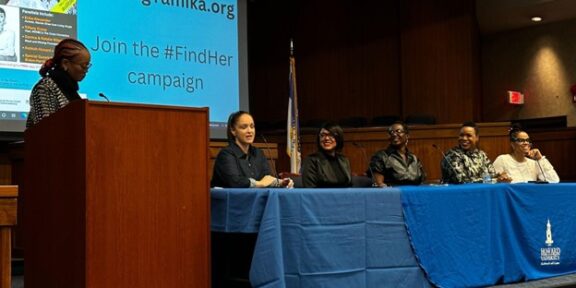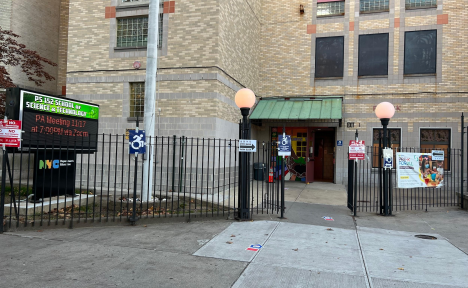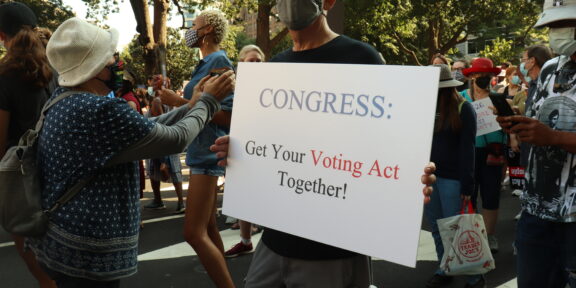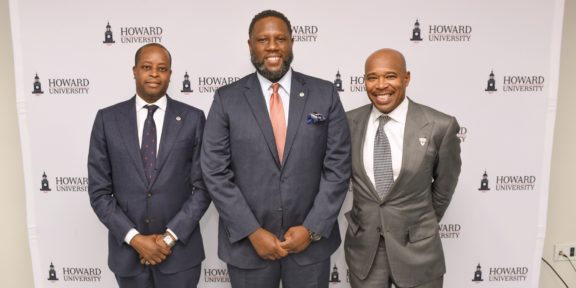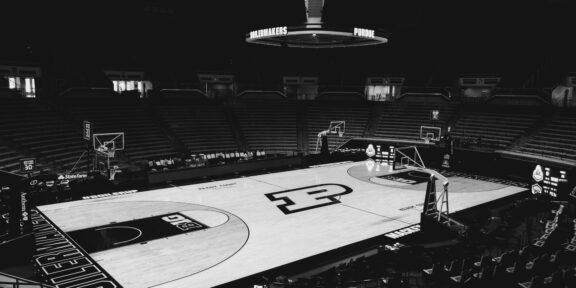By Alana Matthew
Howard University News Service
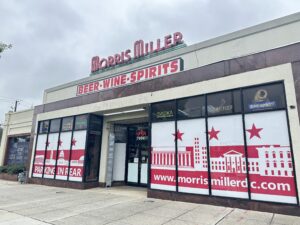
Over the past 90 years, a liquor store in Washington D.C.’s Ward 4, has persevered through prohibition, over 22 presidents, many recessions, and a pandemic.
But Morris Miller Wines and Liquors, the oldest business in all of Ward 4, has a relationship with the Shepard Park community largely unlike its competitors along Georgia Avenue.
The new wine and liquor store started as Morris Miller’s Grocery on Upshur Street. Today, it resides on the separation line between Upper Georgia Ave and Silver Spring, Maryland on Alaska Ave since its relocation during the Great Depression.
Jay Patel, the owner of Morris Miller, said he was originally unaware of the store’s history with the community. The attractiveness of the location was the original sell. He noted that its border between Montgomery County and D.C. made it a “good location” but later became aware of the store’s deeper ties.
“We heard a lot of stories about the store during the process of purchasing it, that were from a lot of the neighborhood folks whose parents have been shopping here for more than 50 plus years,” Patel said.
The store started as a grocery store just under the family home of Morris Miller, a Jewish Russian immigrant who dreamed of owning a store, according to a popular community blog, Popville.
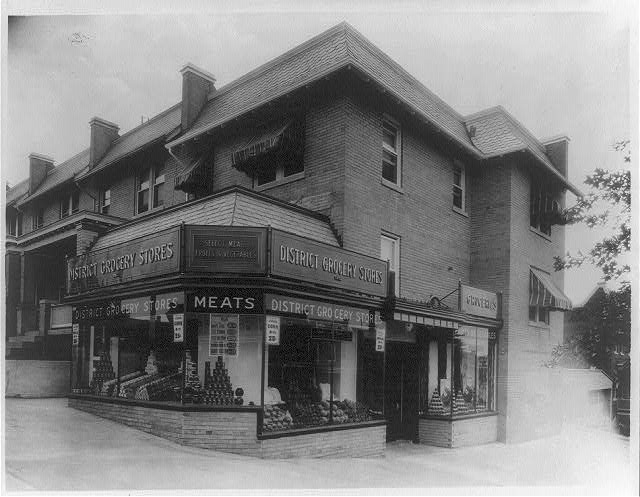
“He was started as a tailor, you know, that he did that first before he became a grocer. He bought other real estate and Silver Spring, Maryland, right near there, and built garden apartments. His vision was to own real estate and to succeed for his family,” said Shauna Wertheim, attorney and granddaughter of Morris Miller.
Miller also became involved with the District Grocery Stores Association as a co-founder, according to Wertheim, when faced with discrimination as a Jewish business owner. Over 20 small independent shops with Jewish owners banded together.
The owners built their own warehouse and purchased goods as a collective, which allowed them to avoid encroachment by larger chains and survive the Great Depression, according to Paul K. Williams, a known historic preservationist in D.C.
Miller, his wife, Minnie, and their children ran the store for over 30 years before his death in 1969. The store left family ownership in 1972, beginning the first major change in the store’s history, according to Wertheim.
Many patrons referenced the changes over the years, but two notable things have remained the same: the name and its neon sign.
“We never even entertained the idea of changing the name, that was before we even knew the historical meaning,” said Patel. “If it ain’t broke, don’t fix it.”
The neon sign, on the other hand, was “broke.” Over the years, due to wear and tear, a few letters in the store’s neon sign were no longer lit and Patel made strides toward replacement until he learned it was a rare piece with few others like it. He then enlisted the help of Douglas Development to repair it.
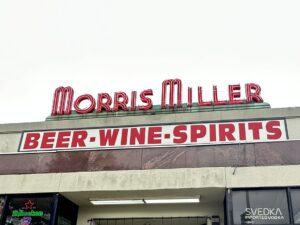
Since buying the store in 2018, Patel has made an effort to continue the legacy and reputation of the liquor store maintained by all previous owners. The business’s ability to stay open seems to be reliant on the passing of ownership over the years.
Carlton Marshall, attorney and resident of Shepard Park for 23 years, affirmed that the store’s longevity is due to the different owners’ ability to maintain the existing reputation and bring something new to the table. “I think each iteration of it from the owners has made it better. And they’ve understood the neighbor…the growth of the neighborhood, the transition of the neighborhood, and the neighborhood is continuing to change as we speak.”
But while the store has been able to survive so long, it experienced difficulties in the areas of crime and employment.
Robberies have been on an upward trend for the past two years, but Patel remains faithful to the community ties they’ve established over the years, according to data from the D.C. Metropolitan Police Department.
Morris Miller remains one of the only liquor stores in the area that doesn’t use plastic barriers as a crime deterrent, said Marshall.

The liquor store has also had trouble securing and retaining employees on the heels of the pandemic citing the need for “stomaching” the over-employment since Morris Miller stayed open as an essential business. According to Patel, all the liquor stores in Montgomery County closed which “put a big push on our foot traffic here in the store.”
The store currently has four full-time employees and around six to seven employees in total, a technical bout of over-employment, said Patel, but a “risk that [they’re] willing to take,” as the holiday season approaches.
Jonathan Nogzi, an employee for over eight years, described the working environment as a fun learning experience. “When people come here they’re amazed at our selection…[but] we try to bring wines everyone can afford.”
While Morris Miller is a neighborhood liquor store, it has a reputation for being competitive with chains like Total Wine & More because of its vast selection including rare liquors, according to Marshall.
Joan Hoyte, long-time patron of Morris Miller and current 4A02 Advisory Neighborhood Commission (ANC) Commissioner, spoke to its relatively wide selection of Caribbean rums.
“Previously, you know, you only get rums from Jamaica or Trinidad [now] you can get Haitian rum and Belizean rum, you know, almost any Caribbean islands rum,” she said.
As the store prepares for its busiest time of the year, described as “fun mayhem” by Patel, Morris Miller remains involved while juggling the holiday rush as Thanksgiving and Christmas approaches.
In previous years, the store collaborated with the ANC and the Shepard Park Citizens Association to do a charity coat drive and be a “rendezvous point” for toy drives.
“We just tried to stay as much involved as we can just because they shop here. We are their local business. It doesn’t hurt to be part of that, local group,” said Patel. “Can’t say the same for Walmart.”
Alana Matthew is a reporter for HUNewsService.com and a Solutions Journalism reporting fellow.



